This is basically a follow-on to the question Newtonsoft Object → Get JSON string .
I have an object that looks like this:
[JsonConverter(typeof(MessageConverter))]
public class Message
{
public Message(string original)
{
this.Original = original;
}
public string Type { get; set; }
public string Original { get; set; }
}
My requirement is to store the original JSON string as part of the object when I initialise it. I have been able to (partially) successfully achieve this using a custom JsonConverter and then basically doing something like this in the JsonConverter:
public override object ReadJson(JsonReader reader, Type objectType, object existingValue, JsonSerializer serializer)
{
if (reader.TokenType == Newtonsoft.Json.JsonToken.Null)
return null;
JObject obj = JObject.Load(reader);
return new Message(obj.ToString(Formatting.None))
{
Type = obj["type"].ToString()
};
}
However the problem I run into is when I try to inherit from Message with something like
public class CustomMessage : Message
{
public string Prop1 { get; set; }
}
For obvious reasons my code fails because it tries to return a new Message() not a new CustomMessage().
So short of implementing a big if statement with all my sub-types and manually binding using something like JObject["prop"].ToObject<T>() how can I successfully populate the Original property while still binding all my sub-type values using the default deserialisation?
NOTE: The reason this is being done is because the original message might contain data that isn't actually being bound so I can't just add a property which serialises the object as it stands.
